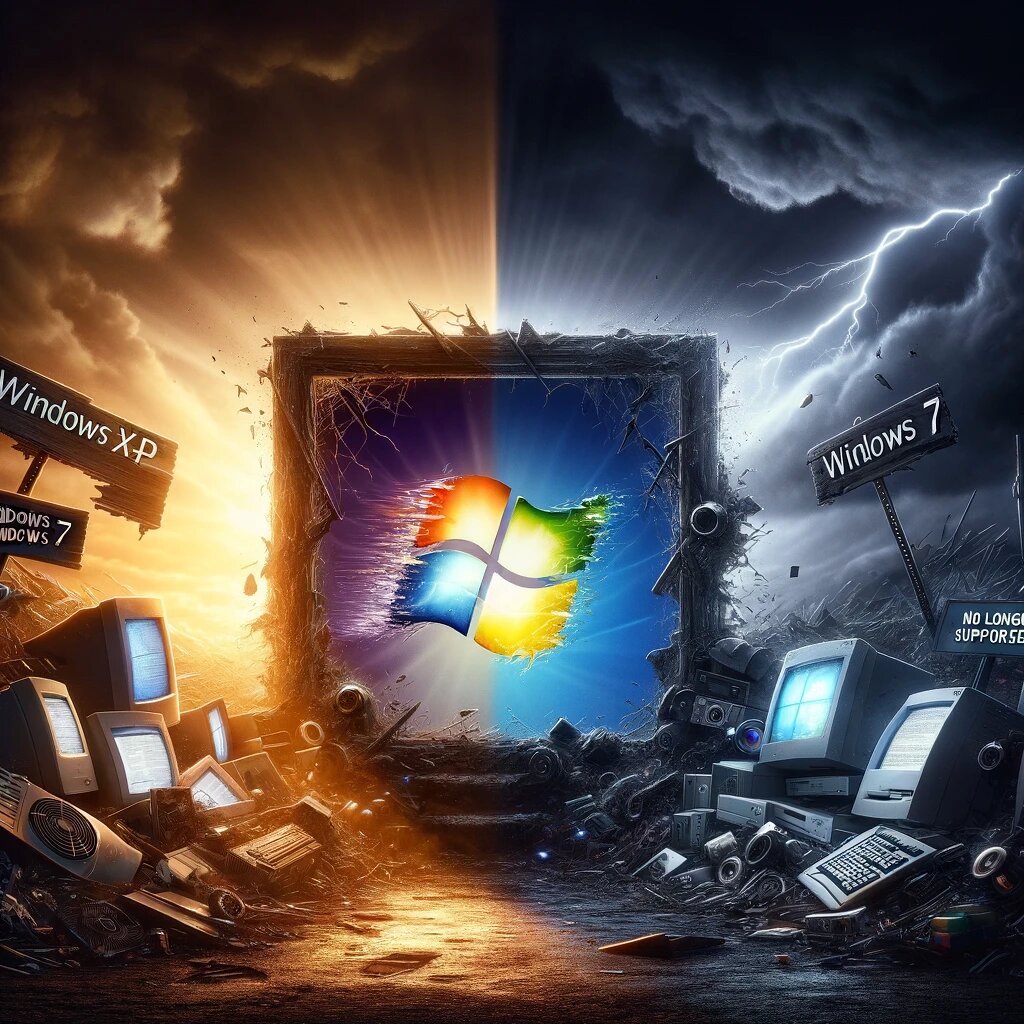When discussing the current state of technology, particularly in the context of the Windows operating systems, Windows XP and Windows 7 hold a special place in the history of computing. Both were landmarks in the evolution of user-friendly interfaces and robust system architectures. When we first started BOSSII Windows XP was the operating system of choice and the OS that almost all client PCs utilized everywhere in our clients South East Queensland hospitality venues. However, as technology marches forward, Windows XP and Windows 7 operating systems have ceased receiving updates from Microsoft. This cessation of support marks a significant turning point, making it increasingly challenging for IT professionals and organizations to maintain systems still operating on these platforms. The lack of updates not only leaves these systems vulnerable to security threats but also means that new software and hardware are often not compatible, making maintenance a complex task.
The end of support for Windows XP and Windows 7 has profound implications for security. Without the regular security patches and updates that are a hallmark of supported operating systems, they become prime targets for malware, viruses, and cyber-attacks. This vulnerability is not just a theoretical risk; it has tangible consequences for businesses and individuals alike, exposing sensitive data and potentially leading to significant financial and reputational damage. For IT professionals like ourselves, ensuring the security of these outdated systems requires an inordinate amount of resources and expertise, often diverting attention from strategic initiatives to what essentially becomes a stop-gap measure. This time also costs the client for what can amount to no solution available.
From a compatibility standpoint, the situation is equally challenging. New applications and hardware frequently do not support older operating systems, leading to a mismatch between user needs and system capabilities. This gap hinders productivity and forces users and organizations to make do with outdated or less efficient software solutions. Moreover, the effort to customize new solutions to work on these older systems is seldom justifiable, especially when considering the cost-benefit analysis. Thus, those reliant on Windows XP and Windows 7 find themselves facing increasing operational inefficiencies and obstacles in leveraging modern technology to its fullest potential.
So to surmise, we no longer can support Windows XP and Windows 7 machines in any of our clients venues in South East Queensland because the above issues present significant challenges for ongoing support and maintenance. The security vulnerabilities and compatibility issues inherent in using outdated operating systems cannot be overstated. For businesses and individuals still operating on these platforms, the situation necessitates a reevaluation of their IT strategy, with a strong consideration for upgrading to more current, supported versions of Windows or moving to more modern Android or Apple Tablets. Doing so is not merely a matter of keeping pace with technology trends but ensuring the security, efficiency, and future scalability of your digital infrastructure.
Working with BOSSII will allow your South East Queensland hospitality venue to take advantage of more varied choices of operating systems and also move out of the dark ages of Windows XP and 7.
